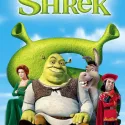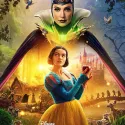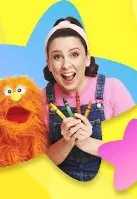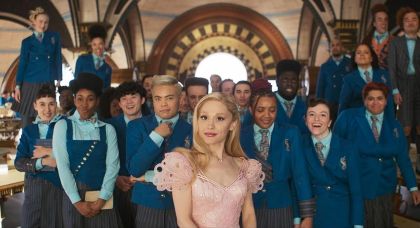
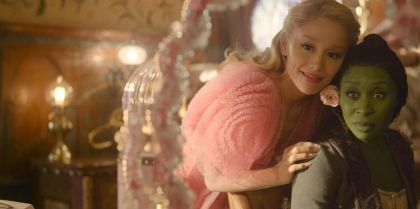
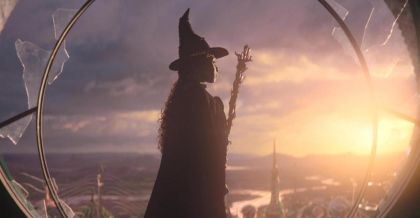
Wicked
Wicked, a groundbreaking musical set in the Land of Oz, has captivated audiences since its debut in 2003. Based on Gregory Maguire's novel "Wicked: The Life and Times of the Wicked Witch of the West," the musical reimagines the backstory of iconic characters from L. Frank Baum's "The Wonderful Wizard of Oz." With its profound themes of friendship and what it means to be 'good' or 'wicked,' it has transformed how we view familiar tales from childhood.
The Musical's Origins
The journey of Wicked began when composer Steven Schwartz collaborated with playwright Winnie Holzman. Their aim was to craft a narrative that not only entertained but also provoked thought regarding societal perceptions of morality and reputation. This creative duo succeeded in creating complex characters that resonate with audiences of all ages, leading to a re-evaluation of the characters we thought we knew.
Characterization of Elphaba and Glinda
Elphaba, the character who becomes the Wicked Witch of the West, is portrayed as a misunderstood outcast. Her struggle with societal expectations and her quest for personal identity make her relatable. In contrast, Glinda is depicted as the popular and bubbly character, who on the surface appears to embody the qualities of 'goodness.' However, as the story progresses, both characters display depth and flaws, exploring themes of friendship, rivalry, and the complexities of human nature.
Thematic Richness of Wicked
The themes in Wicked are intricate and multifaceted. At its core, the musical challenges the black-and-white binary of good and evil, prompting audiences to consider the circumstances that shape one’s identity. The story highlights issues such as discrimination, the struggle for acceptance, and the impact of choices made in moments of desperation. This thematic richness has played a significant role in making the musical a cultural phenomenon.
The Music of Wicked
One of the standout features of Wicked is its score, which includes memorable songs such as "Defying Gravity," "For Good," and "Popular." Schwartz's music is pivotal in conveying the emotional weight of the characters' journeys. The songs are designed not only to entertain but to deepen our understanding of the characters and their motivations, elevating the narrative to new heights.
Visual Aesthetics and Production Design
The visuals of Wicked are as enchanting as its storyline. From the elaborate costumes that reflect the characters' personalities to the stunning set designs that transport the audience to the magical land of Oz, every element of the production is thoughtfully curated. The use of color symbolism, especially contrasting palettes for Elphaba and Glinda, further enhances the narrative and thematic undertones.
Impact on Broadway and Beyond
Since its opening, Wicked has had a monumental impact on the Broadway landscape. It has broken box office records and won numerous awards, including three Tony Awards. Its success has also paved the way for other adaptations of literary works into musical formats, inspiring a new generation of theater makers to explore unconventional narratives.
Wicked's Cultural Significance
Wicked has transcended the realm of theater to become a cultural touchstone. Phrases, quotes, and songs from the musical have seeped into popular culture, influencing fashion, media, and even political discourse. The central message of questioning labels and defying expectations resonates widely, making Wicked a timeless narrative.
Global Reach and International Productions
Wicked's influence is not confined to American audiences. The musical has enjoyed numerous international productions, captivating fans around the globe. Different countries have adapted the story to reflect their unique cultural contexts while maintaining the essence of the original narrative. This adaptability is a testament to the universal themes present in Wicked.
Upcoming Film Adaptation
In addition to its musical success, Wicked has long been slated for a film adaptation, igniting excitement among fans. Anticipation regarding casting choices, musical arrangements, and visual representation has generated widespread discussion on social media platforms. Although the path to filming has been fraught with delays, the potential for a cinematic release promises to introduce the story to an entirely new audience.
Character Development in Wicked
The character arcs in Wicked are particularly noteworthy. Elphaba's evolution from an outcast to a powerful figure challenges societal norms. Glinda’s journey showcases personal growth as she navigates fame and inherent privilege. The dynamic between these two characters reflects the complexities of friendship and rivalry, making their story deeply engaging.
Audience Reception and Criticism
While Wicked has been overwhelmingly well-received, it has also faced its share of criticism. Some argue that the reinterpretation of fundamental characters from the original children's story of Oz dilutes its charm. Others feel that the musical's approach to themes could be more nuanced. Nonetheless, the overall reception, both in terms of ticket sales and audience adoration, speaks volumes about its impact on modern theater.
The Legacy of Wicked
The legacy of Wicked can be seen in its enduring popularity, inspiring countless fans to revisit the story and its characters. This influence extends to theater in educational settings, where students explore its musical elements and thematic depth. Moreover, the enduring popularity of Elphaba and Glinda as cultural icons continues to be celebrated in various forms of media, affirming the musical's lasting significance.
Adaptations and Inspirations
The unique narrative of Wicked has inspired adaptations beyond the stage. Various artists, writers, and scholars have engaged with its themes in different mediums, including literature, visual arts, and academic discourse. This cultural dialogue further signifies the relevance of its messages, encouraging audiences to reflect critically on the nuances of identity and morality.
Exploration of Moral Ambiguity
Wicked boldly delves into moral ambiguity, opting to challenge the conventions of storytelling. By illustrating Elphaba’s struggles against an oppressive system, the musical raises compelling questions about power, choice, and moral reasoning. It's a narrative that invites audiences to engage with their perceptions of right and wrong, urging them to reflect on the broader implications of their judgments.
The Role of Friendship and Betrayal
The complexity of friendship is a central theme throughout Wicked. The relationship between Elphaba and Glinda epitomizes the challenges and triumphs of deep connections. From moments of solidarity to instances of betrayal, their dynamic captures the essence of human relationships, highlighting how external pressures can impact personal bonds.
Broadway's Future with Wicked
As Wicked continues to flourish on Broadway, it remains a vital part of the contemporary theatrical landscape. Its ability to resonate with both young audiences and seasoned theatergoers ensures its place in future generations. With the evolving landscape of theater and emerging forms of storytelling, Wicked stands poised to inspire ongoing artistic ventures within the industry.
- Engaging Storyline
- Innovative Character Development
- Memorable Musical Score
- Visually Stunning Production Design
- Deep Thematic Elements
- Cultural Impact and Legacy
- Possible Misinterpretation of Original Characters
- Criticism of Simplistic Morality
- Length may be overwhelming for some audiences






